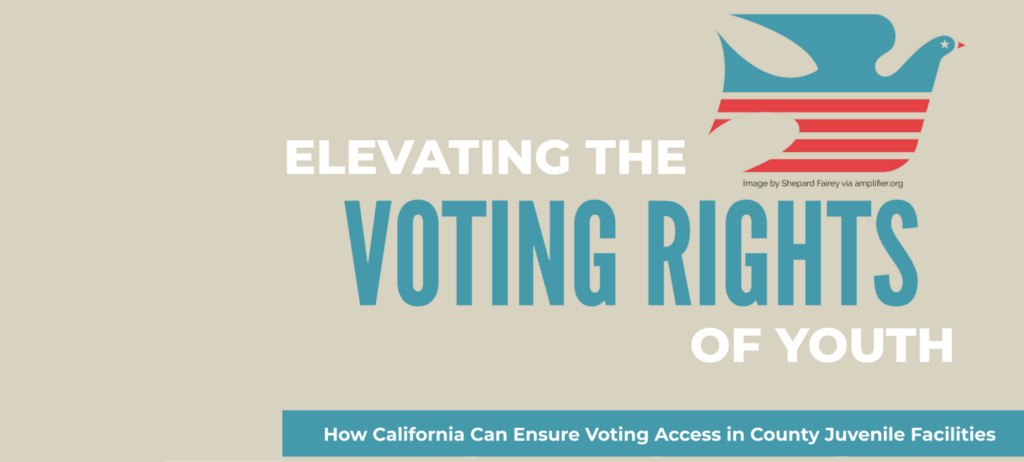
In this edition of the Youth Law Center Brief, we introduce our newly published report, Elevating the Voting Rights of Youth: How California Can Ensure Voting Access in County Juvenile Facilities, the first-ever analysis of voting access for youth confined to county juvenile detention facilities.
Protecting the voting rights of youth who are incarcerated is a critical civil rights issue, given that the juvenile justice system disproportionately impacts youth and families of color, and a higher rate of youth of color are confined in juvenile detention facilities.
In addition to identifying barriers to voting, our report makes a series of recommendations that need to be put in place before the upcoming elections to ensure that youth 18 years and older living in juvenile detention facilities can exercise their constitutional right to vote.
Framing the Issue
In 2023, California closed its youth prisons as part of recent, sweeping changes to its juvenile justice system. One consequence of these changes has been the increase in the number of voting-age youth in county juvenile facilities. While these young people are legally eligible to vote, too often, they lack the information or access they need to exercise their voting rights.
As the November 2024 election will include all seats of the California Assembly, the President of the United States, 33 U.S. Senate seats, including one for California, and all 435 Seats in the U.S. House of Representatives, including 52 for California, the urgency to ensure all eligible voters are able to cast votes to determine the futures of their lives, their communities and our nation could not be more immediate.
Youth Law Center’s Advocacy
Youth Law Center Directing Attorney Meredith Desautels and Staff Attorney Tamar Alexanian co-authored this new report in which they identified barriers to voting, and made a series of timely and tangible recommendations that need to be put in place before the upcoming elections to ensure that youth 18 years and older living in juvenile detention facilities can exercise their constitutional right to vote.
“Studies show that voting has both individual and community benefits, and can be particularly empowering for young adults and those voting for the first time,” said Desautels.
Among the report findings, of the 40 California counties that house youth confined to juvenile facilities:
- 47% of the counties, or 19 of the 40, reported no formal policies, procedures, or practices for the registration or voting of youth in the facility.
- Only 16 counties out of 40, or 40 percent, have a written policy or procedure for registration or voting for youth in juvenile detention.
- Of these 16 counties with written policies on voting, 88 percent have errors in these policies, including outdated and inaccurate legal information or information that pertains only to persons with adult convictions, not juvenile adjudications.
“Through this analysis, our report both identifies gaps in county policies and highlights promising practices that can be replicated around the state and in other states,” noted Alexanian.
Learn More
You may read the full report here: ylc.org/votingrights.
You may view the the responses to our Public Records Act request (PRA) to each California county here: ylc.org/votingrights-cpra.
You may attend our webinar about the report on Wednesday, May 8 at 1:00 pm PT by registering here: ylcqpi.zoom.us/webinar/register/WN_x5hl6Y4iQaqZWNzUjQXxnQ#/registration.
